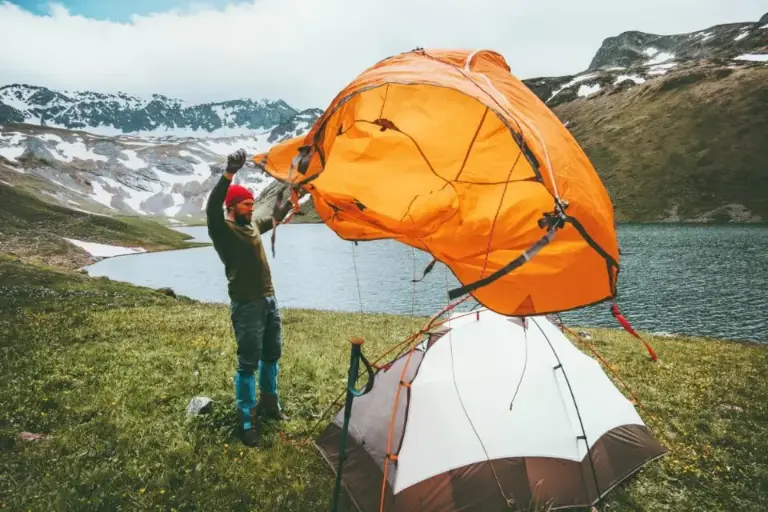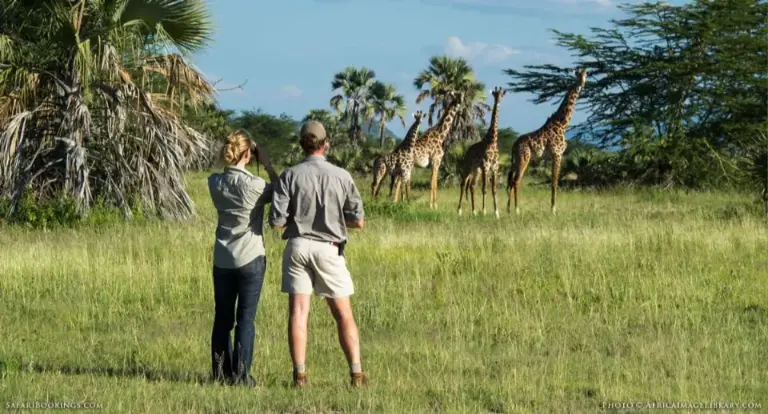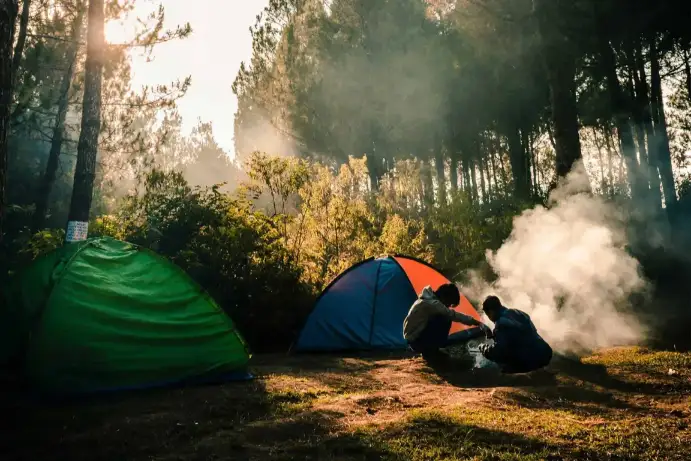In a society where outdoor recreation is more sought after than ever, proper enjoyment of the surroundings is absolutely vital. Whether your hobbies include kayaking down shimmering clean rivers, camping beneath the stars, or hiking across lush forests, they impact the surroundings. A means to enjoy these experiences and preserve the natural world for the next generations is sustainable outdoor recreation.
The following article will walk over doable strategies to reduce your environmental impact while still enjoying the great outdoors.
Appreciating Outdoor Recreation Sustainable Style
Enjoying nature while making sure that the next generations may also do so is the essence of sustainable outdoor leisure. It emphasizes lowering waste, protecting natural resources, and so minimizing human effects on ecosystems. Sustainable activities seek to strike a balance between fun and responsibility, unlike conventional outdoor recreation, which could inadvertently damage delicate ecosystems and species.
Sustainable outdoor recreation gives leave-no-trace ideas a top priority, which motivates people to leave natural environments as they discover them. This movement guarantees the preservation of natural ecosystems and the protection of species, so it is strongly related to attempts at conservation. Participating in sustainable outdoor recreation helps you support responsible travel and assist in the preservation of the environment for the next generations.
Planning Your Trip with Sustainability in Mind
Designing a sustainable outdoor recreation vacation begins with a careful choice. Here’s how you can lessen your environmental impact:
- Choose Eco-Friendly Destinations: Search for parks, paths, and campgrounds noted for their dedication to environmental preservation and animal conservation. Many national parks and natural reserves follow policies to safeguard their ecosystems and encourage low impact camping.
- Use Sustainable Travel Methods: Travel sustainably to help. Choose public transit, carpooling, or biking wherever at all possible to lower your carbon impact. These choices help to balance your influence on traffic and pollution in natural surroundings, therefore supporting the principles of ethical travel.
- Pack Modest and Environmentally Friendly: Avoid single-use plastics and pack food containers, drink bottles, and cutlery—reusable items. When you pack sustainably—that is, when you eliminate waste—following leave no trace principles is easier.
- Support Local and Green Businesses: Support nearby green companies. Select lodging, dining, and travel companies that give sustainability a top priority. Your outdoor recreation excursion is more environmentally friendly at many eco-lodges and campgrounds since many of them are made to have as little effect on the surroundings.
Thoughtful planning will help you to enjoy nature at its best and guarantee that your outdoor recreation excursion supports environmental preservation.
Reducing Your Environmental Effects
Reducing your environmental impact is the foundation of sustainable outdoor recreation. Using the leave no trace ideas which offer direction for preserving natural environments is an excellent approach to do this.
- Travel on Durable Surfaces: Use designated paths whether you are riding or hiking. This protects fragile ecosystems and aids with path maintenance.
- Dispose of Waste Properly: From food wrappers to trash, always pack out whatever you bring. Ignoring garbage left behind could endanger species and disturb the surroundings. Reducing your effect can also come from using biodegradable soap and having small campfires.
- Respect Wildlife and Ecosystems: Seeing animals from a distance shields them from damage or stress. Never feed wild animals since this will change their everyday habits and diet. Sustainable outdoor leisure depends much on giving wildlife protection first priority.
- Reduce Single-Use Plastic: Minimize Among greener products that reduce plastic consumption are solar-powered chargers and reusable bags. Bringing strong, long-lasting equipment along not only helps with waste reduction, therefore aiding conservation initiatives, but also over time saves money.
Maintaining these values can help you to enjoy outdoor recreation while safeguarding the surroundings for other people.
Eco-Friendly Outdoor Gear: What to Look For
Your gear choices count when getting ready for environmentally friendly outdoor enjoyment. Look for durable goods made from sustainable resources.
- Sustainable Materials: Select tools fashioned from organic cotton, repurposed materials, or biodegradable fibres. Companies are providing more and more environmentally friendly tents, clothes, and bags.
- Brands Leading the Way: Many companies concentrate on manufacturing robust, premium equipment for outdoor use. Seek businesses who give conservation initiatives first priority and reduce their production carbon footprint.
- Durability Matters: Investing in long-lasting equipment not only helps the environment but also your pocketbook. Well-made goods imply you won’t have to replace them often, therefore lowering the waste produced by outdoor leisure.
Sustainable Practices for Specific Outdoor Activities
Various forms of outdoor activity are needed for particular sustainable methods. These ideas should help you to think:
Camping and Hiking

- Follow Low-Impact Paths: Keeping on approved paths and campsites helps with trail preservation.
- Minimal Impact Camping: Set up camp in places fit for human activity and limit your impact on the surroundings by using already-existing fire pits.
Water-Based Activities (Kayaking, Canoeing, Fishing)
- Ecological Fishing: When at all feasible, practice catch-and-release; steer clear of fishing in overpopulated regions.
- Avoid Pollution: Use biodegradable cleaning products and environmentally friendly sunscreen to help to avoid toxins contaminating rivers and lakes.
Wildlife Viewing

- Protecting Wildlife: Never meddle with animals’ natural habitat and keep a safe distance from they. This reduces your chance of stressing or damaging them.
Changing these sustainable habits will help you to make sure that your outdoor recreation activities benefit the surroundings as well as you.
Advocating for Sustainability in Outdoor Recreation
Advocacy for change is among the most effective strategies for supporting sustainable outdoor recreation. Here are some ways you might help:
- Join Environmental Organizations to Help: Support groups emphasizing habitat restoration and path maintenance as part of conservation initiatives. The protection of natural areas depends critically on these groups.
- Share Knowledge with Others: Tell your friends and relatives the value of environmentally friendly living. Spreading knowledge of how human activities affect the earth depends on environmental education.
- Assistant: One practical method to repay is by helping with conservation projects or clean-ups. Many outdoor recreation sites require volunteers to assist with chores including garbage removal and trail maintenance.
Promoting sustainable outdoor leisure helps to guarantee that the next generations will be able to enjoy these natural beauties.
Sustainable Food and Water Practices While Outdoors
Your outdoor activity footprint can be changed significantly by the foods and beverages you choose. Think about these ideas:
- Opt for Local and Organic: When getting ready for a trip, consider organic, locally-grown cuisine. It’s not only better for your health but also helps nearby businesses and lowers traffic pollutants.
- Reduce Packaging Waste: Bring napkins, utensils, and reusable containers to help to cut waste. Reducing packaging guarantees you are using leave no trace guidelines.
- Sustainable Water Solutions: Substitute water filters or purifying tablets for bottled water. These approaches are better for the environment and less expensive as well.
Minimizing waste during outdoor recreation and aiding conservation efforts depend on sustainable food and water policies.
The Future of Ecological Outdoor Recreation
Along with eco-tourism, there is increasing demand for creative sustainable outdoor recreation. From solar-powered campsites to eco-friendly gear rentals, technology is helping visitors do less damage the surroundings.
- Eco-Adventures: Many businesses today provide eco-friendly travel experiences that give conservation initiatives and responsible tourism a top priority.
- Technology and Conservation: Technology and Environmental Protection To preserve pathways and monitor wildlife populations, innovations including GPS tagging and drones are being applied, therefore supporting the protection of the species.
- Government Support: Policies encouraging the preservation of natural areas are absolutely necessary to guarantee that outdoor leisure stays sustainable.
Accepting the future of sustainable outdoor recreation will help you to keep enjoying the surroundings and simultaneously help to preserve them.
Lastly
Sustainable outdoor recreation is about choosing wisely to enjoy the environment to the best of our knowledge by preserving it. Whether your activity is kayaking, hiking, or camping, using sustainable techniques guarantees that the next generations may still enjoy it. Following leave-no-trace guidelines, selecting environmentally friendly products, backing conservation initiatives, and advancing environmental education will assist in positively affecting the earth.
Promise to preserve the environment on your next trip and savor the mental clarity that results from being a conscientious outdoor lover.

